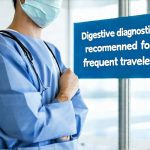Traveling is often synonymous with adventure, exploration, and creating lasting memories. However, for many individuals, the joy of travel can be significantly dampened by unpleasant gastrointestinal issues and motion-related nausea. These disruptions aren’t merely inconveniences; they can transform exciting experiences into miserable ones, leaving travelers feeling drained and unable to fully enjoy their journeys. Understanding how food choices and dietary strategies impact your body during travel – whether it’s a road trip, plane flight, cruise, or train journey – is crucial for ensuring a comfortable and enjoyable experience. This article will delve into practical nutrition tips designed to prevent motion sickness and stomach upset while traveling, empowering you to navigate your adventures with confidence and well-being.
The root causes of travel-related nausea and digestive distress are multifaceted. Motion sickness arises from a sensory conflict where the inner ear (which controls balance) sends signals different from those received by the eyes. This mismatch confuses the brain, leading to symptoms like dizziness, nausea, and vomiting. Stomach upset can stem from various factors including changes in diet, unfamiliar foods, stress, dehydration, or even altitude changes. Furthermore, travel often disrupts regular eating patterns and introduces new bacteria into the digestive system, increasing susceptibility to discomfort. A proactive approach involving mindful food selection and strategic hydration is essential for minimizing these risks and maximizing your enjoyment while on the move. If you struggle with frequent nausea and indigestion, exploring the benefits of probiotics might be helpful.
Pre-Travel Dietary Preparation
Preparing your body before you embark on a journey can significantly reduce the likelihood of experiencing motion sickness or stomach upset. This isn’t about restrictive dieting, but rather about optimizing your digestive health and ensuring adequate hydration leading up to travel. Focus on consuming easily digestible foods in the days prior, avoiding overly greasy, spicy, or heavily processed meals that could potentially irritate your system. A diet rich in complex carbohydrates – like whole grains, fruits, and vegetables – provides sustained energy without putting excessive strain on digestion.
- Consider incorporating probiotics into your routine a week before departure. These beneficial bacteria can help bolster gut health and improve resilience against unfamiliar microbes encountered during travel. Yogurt (with live cultures), kefir, sauerkraut, or probiotic supplements are all viable options.
- Hydration is paramount. Begin increasing your water intake several days beforehand to ensure you’re well-hydrated when traveling. Dehydration exacerbates both motion sickness and digestive issues.
Finally, plan your meals strategically for travel day itself. Avoid large, heavy meals immediately before or during transit. Instead, opt for smaller, more frequent snacks that are gentle on the stomach. This minimizes the workload on your digestive system while in motion, reducing the chances of nausea or discomfort. Remember, preventative measures taken beforehand often yield the greatest impact on overall travel well-being. You can also find step-by-step strategies to reduce stress-induced nausea and improve gut function which is especially helpful before travel.
On-the-Go Nutrition Strategies
Once you’re traveling, maintaining mindful eating habits is crucial. The key is to prioritize foods that are easy to digest and won’t exacerbate motion sickness symptoms. This means avoiding highly processed snacks, sugary drinks, and excessive caffeine or alcohol. These substances can all contribute to dehydration and stomach irritation. Instead, focus on simple, nutrient-rich options like:
- Dry crackers (saltines are a classic choice)
- Plain toast or breadsticks
- Bananas
- Applesauce
- Rice cakes
- Ginger snaps or ginger ale (ginger has well-documented anti-nausea properties – more on this later!)
Hydration remains absolutely critical. Carry a reusable water bottle and sip water consistently throughout your journey, even if you don’t feel thirsty. Avoid sugary sodas and caffeinated beverages which can worsen dehydration. Consider electrolyte solutions or tablets to replenish lost minerals, especially during long flights or in hot climates. Consistent small sips are more effective than chugging large amounts of water at once. If you’re recovering from a stomach episode, returning to normal eating can be tricky but these tips may help.
The Power of Ginger
Ginger is a natural remedy widely recognized for its ability to alleviate nausea and vomiting, making it an invaluable ally for travelers prone to motion sickness. Its active compounds, gingerols and shogaols, work by calming the stomach and reducing inflammation in the digestive tract. There are several ways to incorporate ginger into your travel routine:
- Ginger Chews or Candies: Convenient and readily available, these offer a subtle way to consume ginger throughout your journey.
- Ginger Ale (Real Ginger): Choose brands that contain actual ginger rather than artificial flavoring.
- Ginger Capsules: For those who prefer a concentrated dose, ginger capsules can be taken before or during travel.
- Fresh Ginger Tea: Brewed from fresh ginger root, this provides a soothing and effective remedy.
It’s important to note that while generally safe, excessive ginger consumption may interact with certain medications. If you have any underlying health conditions or are taking medication, consult your doctor before using ginger as a remedy for motion sickness. You can learn more about ginger chews and their benefits here.
Mindful Snacking & Portion Control
Overeating during travel is a common mistake that can lead to discomfort and nausea. Your digestive system works harder when you’re in motion, so it’s best to avoid placing an excessive burden on it. Embrace the concept of mindful snacking – choosing small, frequent snacks rather than large meals. This helps maintain stable blood sugar levels and prevents your stomach from becoming overly full.
- Opt for foods that are easily digested and won’t cause bloating or gas.
- Avoid greasy, fried, or heavily processed snacks.
- Pay attention to portion sizes – a small handful of nuts or a piece of fruit is often sufficient.
Consider carrying pre-portioned snacks in reusable containers to avoid overindulging. This simple step can make a significant difference in your comfort level during travel. Planning ahead and packing healthy snack options ensures you’re less tempted to rely on unhealthy convenience foods while on the go. Practicing eating mindfully can help prevent digestive upset during travel.
Hydration & Electrolyte Balance
Dehydration is a major contributor to both motion sickness and stomach upset, so maintaining proper hydration is paramount. Travel often involves altered environments – air travel with low humidity, hot climates, or physical exertion – all of which can lead to fluid loss. Water alone isn’t always enough; replenishing electrolytes lost through sweat is also crucial for optimal function.
- Drink water consistently throughout your journey, even if you don’t feel thirsty.
- Consider electrolyte solutions or tablets, particularly during long flights or in hot weather.
- Avoid sugary drinks and excessive caffeine, which can exacerbate dehydration.
- Be mindful of altitude changes, as these can increase fluid loss.
For additional relief, consider herbal treatments like ginger, peppermint and chamomile for nausea and bloating relief.
By implementing these nutrition strategies, travelers can proactively minimize the risk of nausea and stomach upset, transforming their journeys into enjoyable and memorable experiences. Remember that individual tolerance levels vary, so experiment with different approaches to find what works best for you. If morning nausea is a problem, managing it without skipping breakfast might be the solution.


















